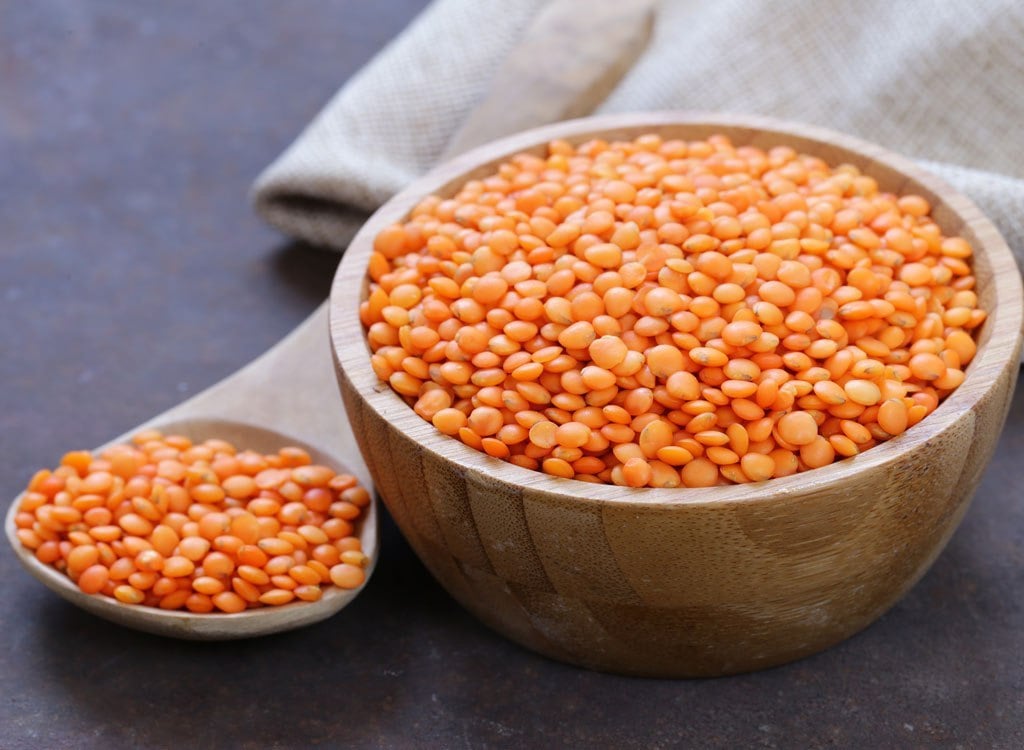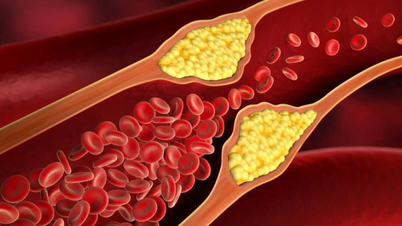Nutritionist Nguyen Thu Ha (South Saigon International General Hospital) said that lentils, also known as iron beans (English name: Lentils), belong to the legume family, are rich in protein and fiber but contain very little fat and absolutely no cholesterol.
"Lentils are considered a good source of nutrients that help support cardiovascular health, manage diabetes, prevent cancer, improve digestion, help lose weight, treat anemia, enhance neurological health and prevent atherosclerosis in pregnant women and the elderly. There are many types of lentils, popularly brown lentils, green lentils, red lentils, black lentils... each type will have a different flavor and is suitable for each dish," said Dr. Ha.
Nutritional value

Every 100 grams of lentils contains 9-10 grams of protein, more than the amount of protein in 1 chicken egg.
Some important nutritional values of lentils include:
Protein : Lentils contain a large amount of protein. Every 100 grams of lentils contains 9-10 grams of protein, more than the amount of protein in 1 chicken egg. Protein helps maintain and restore cell structure, strengthen muscles, support immune function and many other functions.
Fiber : Lentils are a good source of fiber, which helps improve digestion, prevent rapid increases in blood sugar and maintain digestive health. Every 100 grams of lentils contains 8-9 grams of fiber, accounting for about 30% of the body's fiber needs, which can help maintain a feeling of fullness for longer, helping with weight control.
Vitamins and minerals: Lentils provide many vitamins such as vitamin C, vitamin K, vitamin B1 (thiamine), vitamin B2 (riboflavin), vitamin B3 (niacin) and minerals such as manganese, copper, iron, magnesium, potassium.
Natural antioxidants: Lentils contain many antioxidants such as flavonoids and polyphenols, which can fight the effects of free radicals in the body, reducing the risk of diseases such as diabetes and cardiovascular disease.

Lentils contain many nutritional values that are good for health.
Health benefits
Because of these nutritional values, lentils have many health benefits.
Cancer prevention:
Selenium is a rare mineral found in lentils. It is rarely found in other foods.
Selenium has anti-inflammatory properties, prevents damage to DNA genes, slows tumor growth, and improves immune response to infection by stimulating the production of pathogen-killing T lymphocytes.
In addition, selenium also plays a role in supporting liver enzyme function and detoxifying some cancer-causing compounds in the body.
Procyanidins and flavonoids are polyphenols found in lentils that have strong anti-inflammatory and antioxidant properties. They help promote health and inhibit the growth of cancer cells. The fiber in lentils also helps reduce the risk of colorectal cancer.
Improve heart health

Lentil soup
Lentils are rich in folic acid (vitamin B9), iron and vitamin B1, which are good for heart health. Folic acid protects heart health, supports the formation of red blood cells and is involved in the formation of the neural tube in the fetus. This is especially important for fetal development in pregnant women. Lentils can reduce the risk of heart disease by reducing bad cholesterol and blood pressure.
Support the digestive system
Lentils provide a lot of soluble fiber which helps promote digestive function, reduces the absorption of unhealthy fats and creates favorable conditions for intestinal flora to develop, enhancing the body's immunity.
Reduce the risk of chronic diseases
Studies have shown that regular consumption of lentils can reduce the risk of chronic diseases such as diabetes, obesity, cancer and cardiovascular disease. This is due to their rich content of polyphenols – lentils are among the top-ranked legumes in terms of this antioxidant content.
For most people, lentils are a healthy addition to a balanced diet. However, lentils contain anti-nutrients that can make it harder for the body to absorb certain vitamins and minerals, including iron, zinc, and calcium. Soaking and cooking lentils thoroughly can reduce the anti-nutrient effects. Like other legumes, some people may be allergic to lentils.
Source link






![[Photo] Prime Minister Pham Minh Chinh attends the Patriotic Emulation Congress of the Ministry of Foreign Affairs for the 2025-2030 period](https://vphoto.vietnam.vn/thumb/1200x675/vietnam/resource/IMAGE/2025/11/10/1762762603245_dsc-1428-jpg.webp)
![[Photo] Prime Minister Pham Minh Chinh attends the annual Vietnam Business Forum](https://vphoto.vietnam.vn/thumb/1200x675/vietnam/resource/IMAGE/2025/11/10/1762780307172_dsc-1710-jpg.webp)























































































![Dong Nai OCOP transition: [Article 3] Linking tourism with OCOP product consumption](https://vphoto.vietnam.vn/thumb/402x226/vietnam/resource/IMAGE/2025/11/10/1762739199309_1324-2740-7_n-162543_981.jpeg)











Comment (0)